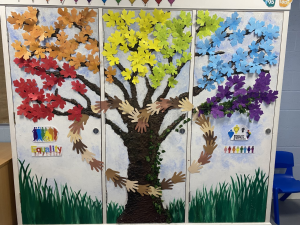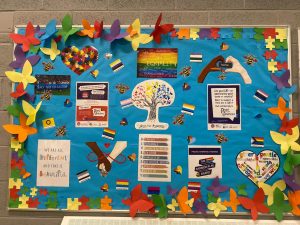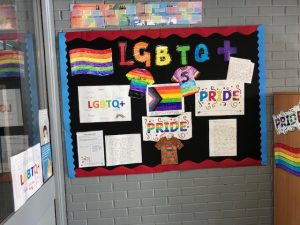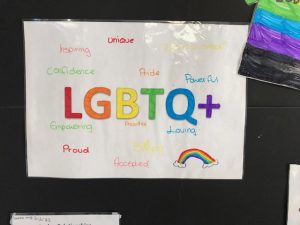Personal Development
PSHE
Intent
Our personal, social and health education (PSHE) programme promotes children’s personal, social, emotional and economic development, as well as their health and well-being. It helps to give children the knowledge, skills and understanding they need to lead confident, healthy, independent lives and to become informed, active, responsible citizens.
At Brownhill Learning Community our aim is to identify and meet individual learning needs through a nurturing environment. Children’s wellbeing, happiness and safety is our top priority and PSHE is a key tool used to accomplish this.
Our PSHE curriculum is broad and balanced, topics are taught at an appropriate emotional and age level. This ensures that the curriculum:
- Promotes moral, cultural, mental and physical development of our children and makes them aware of their place in society.
- Prepares our children for the opportunities, responsibilities and challenges they already face and for adult life.
- Provides information on keeping healthy and safe, both physically and mentally.
- Encourages children to think about choices, so they understand that all actions have consequences. To support pupils with making informed choices to help themselves, others and the environment.
Implementation
Through the PSHE curriculum we aim for children to:
Health and Wellbeing
- Know and understand what constitutes a healthy lifestyle.
- Know how to maintain physical, mental and emotional health and wellbeing.
- Be aware of safety issues, including how to respond in an emergency.
- Know how to manage change, including puberty, transition and loss.
Relationships
- Develop and maintain a variety of healthy relationships within a range of social and cultural contexts.
- Know how to recognise and manage emotions within a range of relationships.
- Know how to recognise risky or negative relationships, including all forms of bullying and abuse, and ask for help.
- Know how to respect equality and diversity in relationships.
Living in the Wider World
- Know the importance of responsible behaviours and actions.
- Be positive members of the school community.
- Be positive and active members of a democratic society.
- To know the importance of your rights and the right of others you work with.
- To understand that we all don’t share the same beliefs and values. Respecting the values, ideas and beliefs of others whilst not imposing our own others.
- Know about the importance of respecting and protecting the environment.
- To understand the need for rules to make a happy, safe and secure environment to live and work.
- Develop self-confidence and self-esteem and make informed choices regarding personal and social issues.
- Develop good relationships with other members of the school and the wider community.
- Know about where money comes from, keeping it safe and the importance of managing it effectively.
- Have a basic understanding of enterprise.
Organisation/ Provision
PSHE is delivered within a whole school approach, which includes:
- Dedicated curriculum time.
- Teaching PSHE through cross-curricular areas.
- Specialised assemblies.
- Intervention work – through youth workers and the welfare team.
- Pastoral care and guidance.
- Careers education.
- Visiting speakers.
Impact
The implementation of this curriculum ensures that when children leave Brownhill Learning Community, they are ready to cope with modern Britain. They will have developed skills to express their emotions and understand how they can live healthy both physically and mentally. They will also be equipped with skills for their future careers and challenges going forward.
Complete PSHE, RE . PSD Overview Updated.docx
CEIAG
The BLC is committed to providing a planned programme of careers education and impartial information, advice and guidance for all students, in partnership with Positive Steps.
The BLC strives to work within the GATSBY Benchmarks supported by the Raising Participation and Apprenticeship Team.
The careers programme is designed to meet the needs of the students in our community. It is designed to ensure progressions through a variety of activities that are appropriate to students’ stages of career learning, planning and development.
Students are entitled to CEIAG which meets professional standards of practice and which is person centered and impartial.
It is embedded into students’ experience of the whole curriculum and based on a partnership with students and their parents/carers.
Raising aspirations, challenging stereotyping and promoting equality and diversity are key aspects.
We currently hold ‘The Quality in Careers Standard’ for Inspiring Information, Advice and Guidance in school and we are working very hard to ensure that we maintain this high standard in the future.
Who to Contact?
If you need advice from any of our Careers advisors, they can be contacted below.
Diane Wilkinson
Email: dwilkinson@theblc.org.uk
Telephone: (0300) 3038384, option 3
Saxon Hall, Samson Street, Rochdale, Lancashire, OL16 2XW
Peter Tupman
Email: ptupman@theblc.org.uk or PeterTupman@positive-steps.org.uk
Telephone: (0300) 3038384, option 3
Saxon Hall, Samson Street, Rochdale, Lancashire, OL16 2XW
FAQs
Have a question? Want to know a bit more about careers guidance? To help you get your answers quickly, I’ve compiled a list of some of the most popular questions I’ve received from other parents, carers & students.
Can’t find what you’re looking for? Get in touch and I’ll be happy to assist you.

Diane Wilkinson
Progression Officer
What does CEIAG stand for?
CEIAG stands for Careers Education, Information, Advice and Guidance
Will I still get my child benefit?
Your child benefit stops on 31st August on or after your 16th birthday. If you do not go onto another form of education, training or an apprenticeship, your parents/carers won’t receive anything from the Government with regards to money for keeping you at home.
If I go to college, how many hours will I be there?
A full-time course is approximately 16+ hours
Can I get my CSCS card when I leave school?
Yes you can, but there will possibly be a cost, one of which you can find out using the internet.
Do I have to do my Maths and English after I leave school?
Yes you do, if you do not get a Grade 4 or above.
You can only start a full-time job once you have reached the minimum school leaving age of 16 and only after the last Friday in June, you can then work up to a maximum of 40 hours per week.
When do I leave school?
You officially leave school on the last Friday in June. You must then do one of the following until you are 18:
-
Stay in full-time education
-
Start an apprenticeship or traineeship
-
Spend 20 hours or more a week working or volunteering, whilst in part-time education or training
When will I get my National Insurance Number?
You usually get your National Insurance card sent to your home address just before your 16th birthday. There is no legal requirement for you to have this to work. You can start work whilst you are waiting for this to arrive, your employer can still pay you and pay their contributions legally until it comes through to you.





